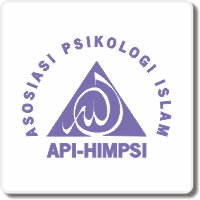The Relationship between Internet Addiction, Mental Health and Suicidal Behavior among Undergraduate Students in Malaysia
DOI:
https://doi.org/10.32923/psc.v5i1.2551Keywords:
Internet addiction, Mental health, Suicidal behavior, Undergraduate studentAbstract
The aim of this study is to determine the relationship between internet addiction, mental health and suicidal behavior among undergraduate students in Malaysia. Online survey method is used in this study. 150 undergraduate students were recruited through convenience sampling. There were three instruments used in this study which were The Internet Addiction Test (IAT), Mental Health Inventory-18 (MHI-18) and The Suicide Behavior Questionnaire Revised (SBQ-R). Descriptive analysis is conducted to determine the prevalence of university students with internet addiction. The results showed that undergraduate students with severe internet addiction was 5.3 %, while 51.3 % of the undergraduate student had moderate level of internet addiction, 28.7% of them had mild level of internet addiction and the rest were normal users of internet. Next, Pearson’s Correlation analysis showed that there is a low negative correlation between internet addiction and mental health (r_150 = -.27, p < 0.01). Furthermore, the Pearson’s Correlation analysis also showed that there is a weak positive correlation between internet addiction and suicidal behavior (r_150 = .23, p < 0.01). In conclusion, we can observe that internet addiction is significantly related to mental health and suicidal behavior. We need to take this issue more seriously as mental health is an important aspect in our life.
Keywords: Internet addiction, Mental health, Suicidal behavior, Undergraduate students
Downloads
Published
Issue
Section
License
Copyright Notice
The Psychosophia: Journal of Psychology, Religion, and Humanity is under the Creative Commons Attribution 4.0 International (CC-BY 4.0) License, according to which:
1) Authors retain copyright and grant the journal the right to first publication, with the work simultaneously licensed under the Creative Commons Attribution (CC-BY 4.0) that allows the sharing of articles published with the acknowledgment of authorship and the initial publication in this journal.
2) The authors are authorized to make additional contracts separately for distribution of the version of the work published in this journal (for example, publication in an institutional repository or as a chapter of the book), as long as there is recognition of authorship and initial publication in this journal.
3) Authors are authorized and encouraged to publish and distribute their work online (for example, in institutional repositories or on their personal pages) at any time before or during the editorial process, as it increases the impact and reference of the published work.






